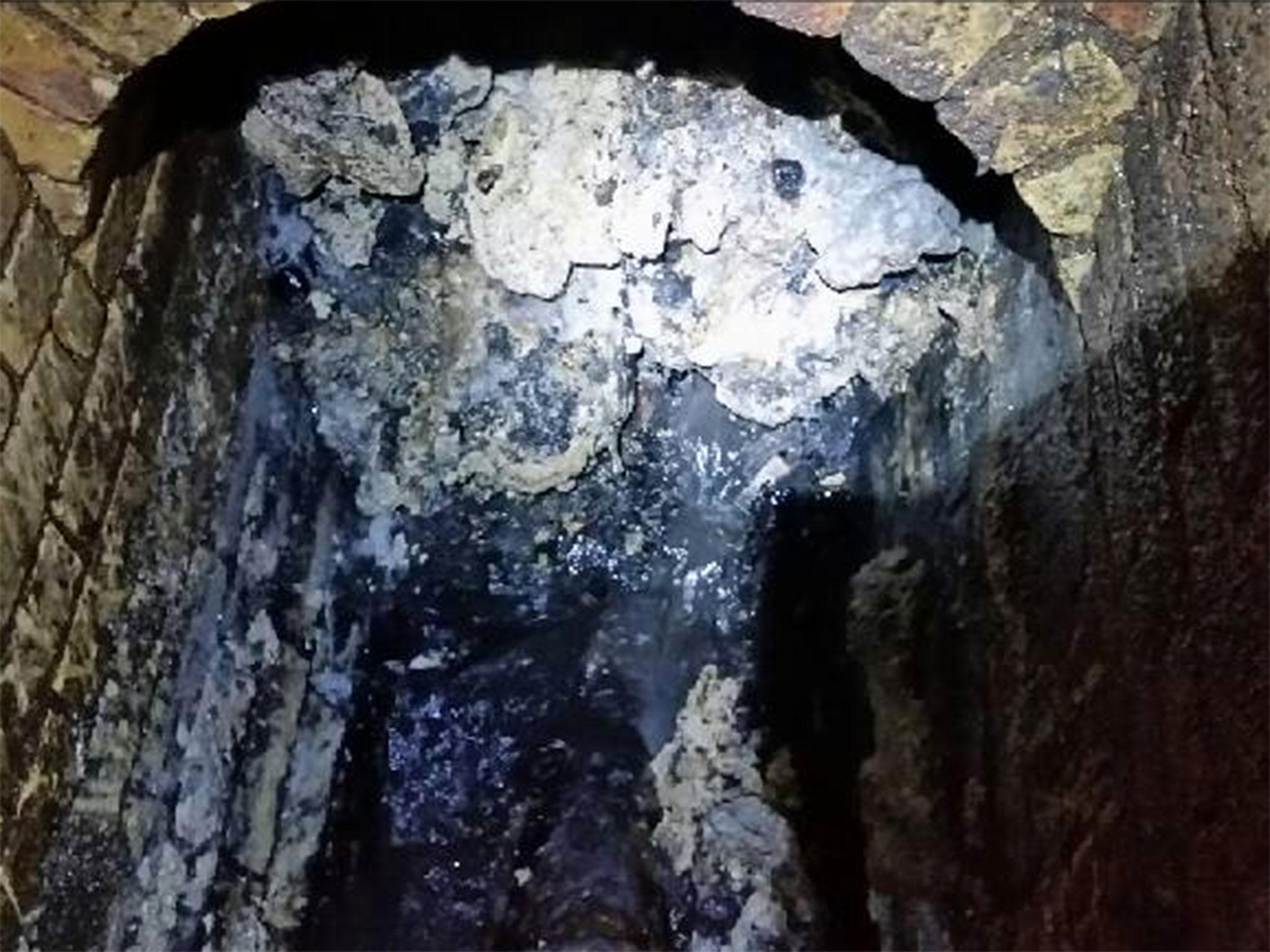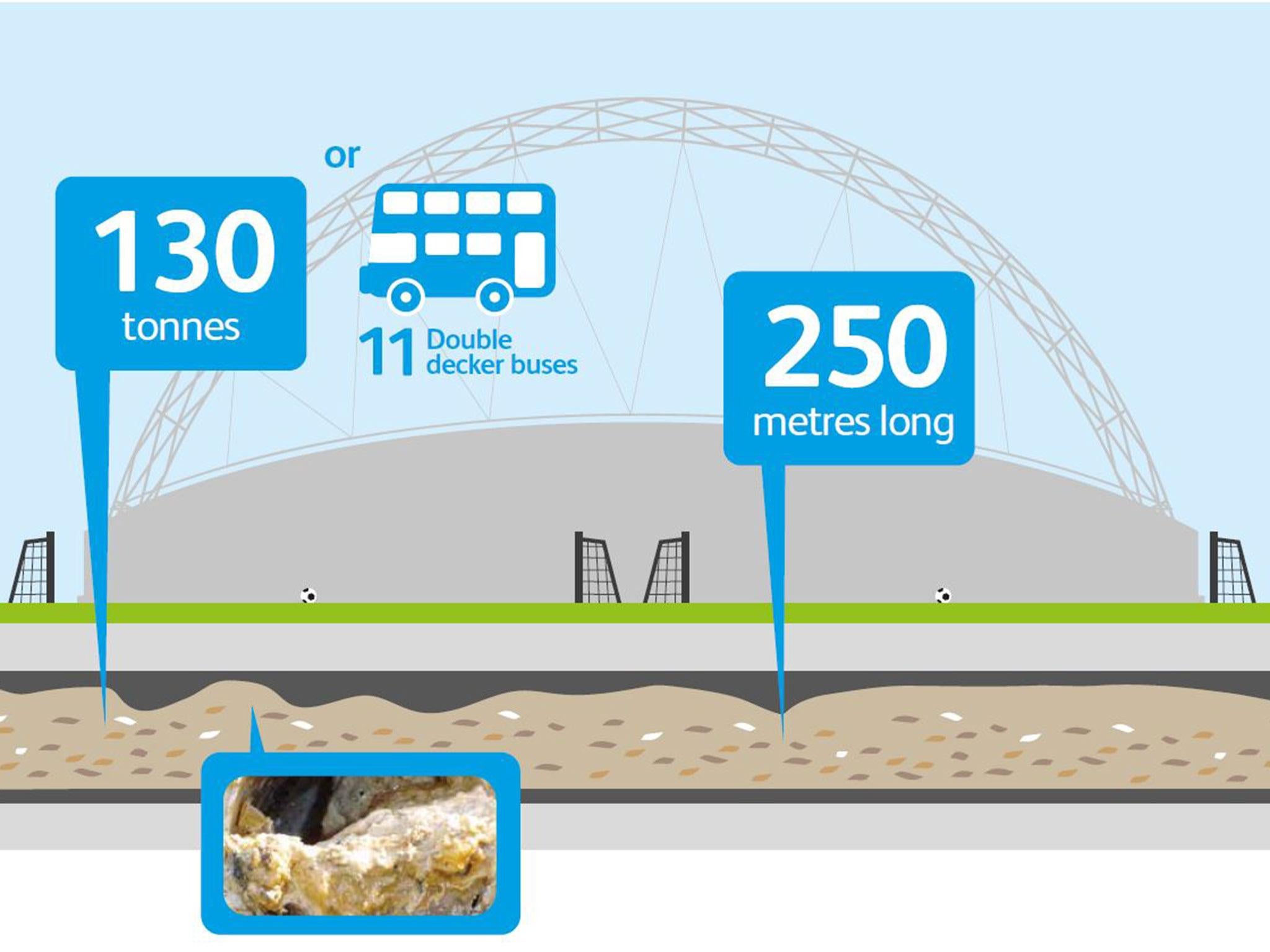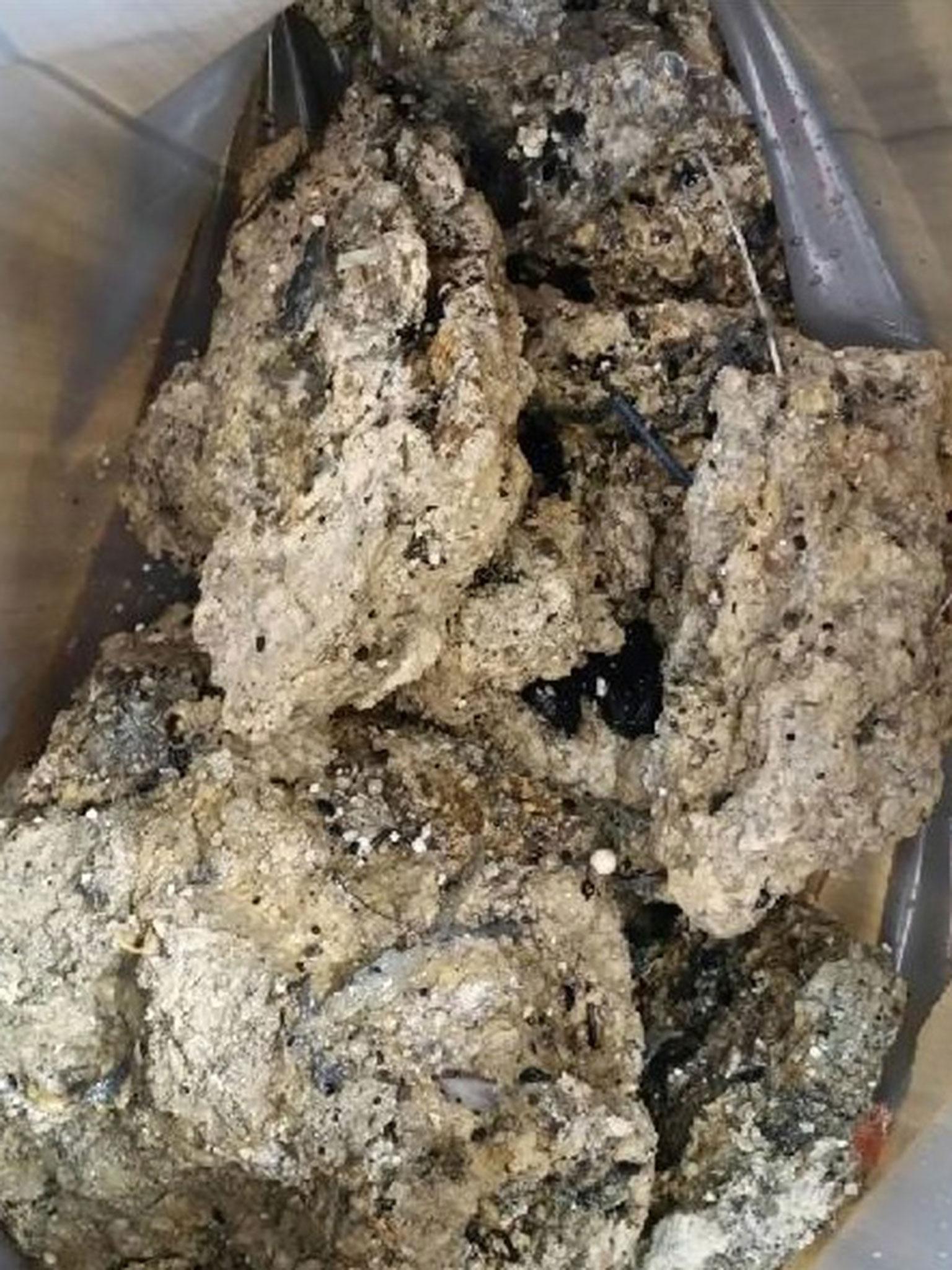'Monster fatberg' weighing more than 10 double deckers found clogging east London sewer
'It’s a total monster and taking a lot of manpower and machinery to remove as it’s set hard'

Your support helps us to tell the story
From reproductive rights to climate change to Big Tech, The Independent is on the ground when the story is developing. Whether it's investigating the financials of Elon Musk's pro-Trump PAC or producing our latest documentary, 'The A Word', which shines a light on the American women fighting for reproductive rights, we know how important it is to parse out the facts from the messaging.
At such a critical moment in US history, we need reporters on the ground. Your donation allows us to keep sending journalists to speak to both sides of the story.
The Independent is trusted by Americans across the entire political spectrum. And unlike many other quality news outlets, we choose not to lock Americans out of our reporting and analysis with paywalls. We believe quality journalism should be available to everyone, paid for by those who can afford it.
Your support makes all the difference.A fatberg the length of two Wembley Stadium football pitches has been found blocking a sewer in Whitechapel, east London.
The 250-metre long solid mass of wet wipes, nappies, fat and oil, weighs the same as 11 double-decker buses.
It is thought to be one of the biggest fatbergs ever found and it is around 10 times larger than the bus-sized fatberg found in a sewer in Kingston-upon-Thames in 2013.

“This fatberg is up there with the biggest we’ve ever seen. It’s a total monster and taking a lot of manpower and machinery to remove as it’s set hard," Thames Water’s head of waste networks, Matt Rimmer, said.
“It’s basically like trying to break up concrete. It’s frustrating as these situations are totally avoidable and caused by fat, oil and grease being washed down sinks and wipes flushed down the loo.”
Thames Water engineers have said it will take them three-weeks to clear the mass.

Work started this week, with an eight-man crew using high-powered jet hoses to break up the fatberg before sucking it out with tankers.
It is then taken away for disposal at a recycling site in Stratford.
Mr Rimmer added:“We check our sewers routinely but these things can build up really quickly and cause big problems with flooding, as the waste gets blocked.
"It’s fortunate in this case that we’ve only had to close off a few parking bays to get to the sewer. Often we have to shut roads entirely, which can cause widespread disruption – especially in London.”
Subscribe to Independent Premium to bookmark this article
Want to bookmark your favourite articles and stories to read or reference later? Start your Independent Premium subscription today.
Join our commenting forum
Join thought-provoking conversations, follow other Independent readers and see their replies
Comments